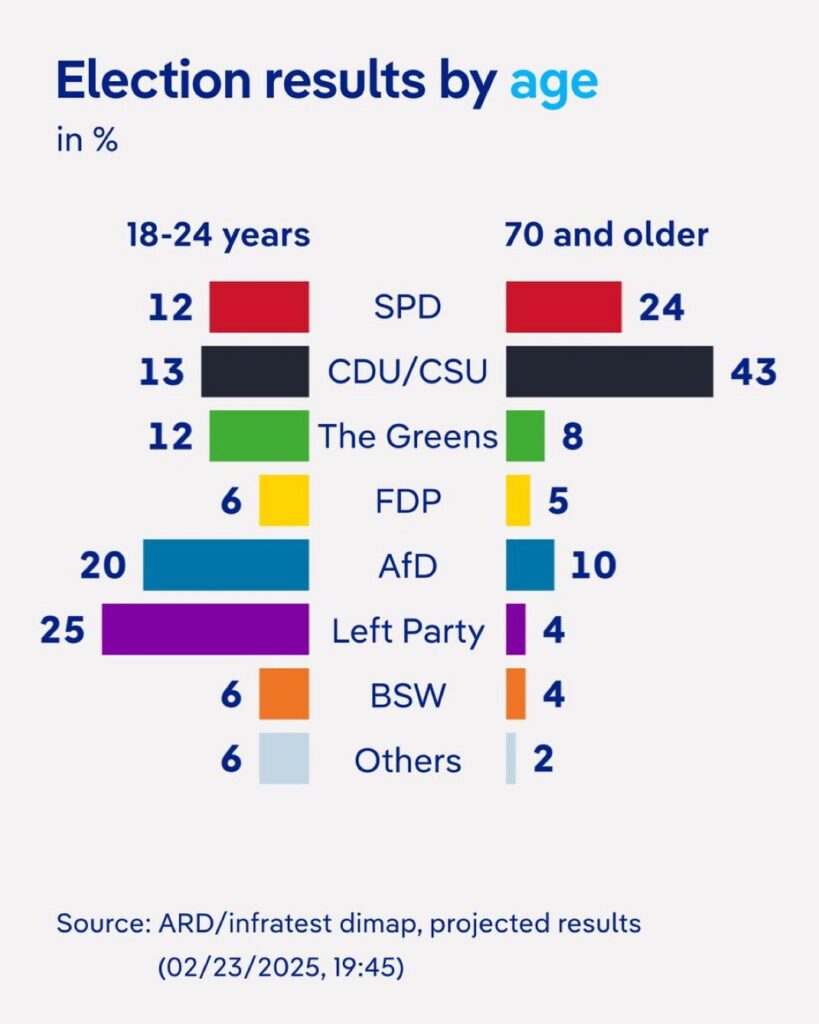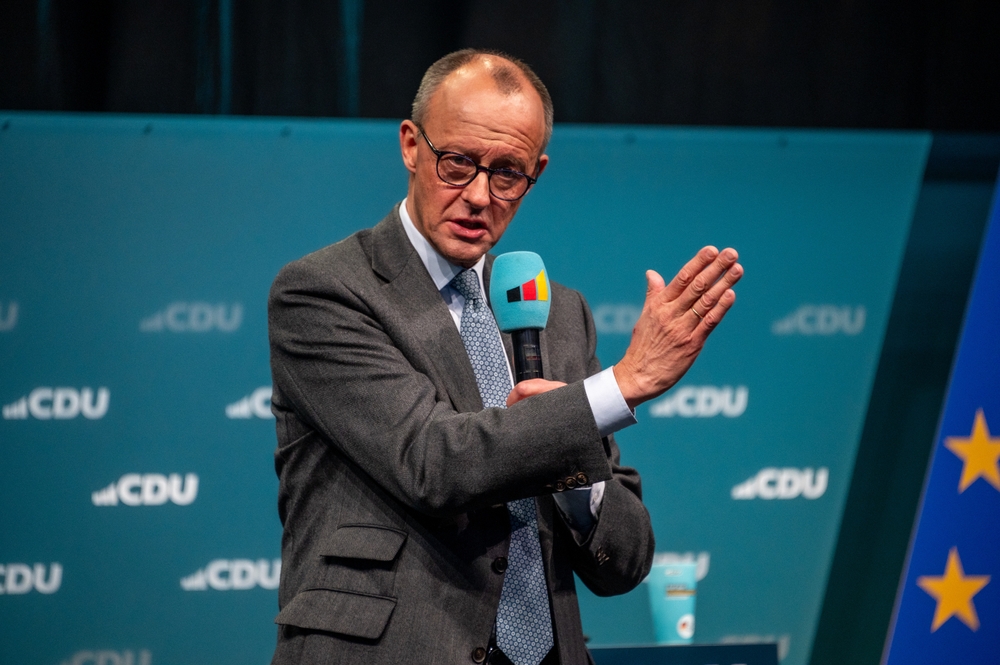Friedrich Merz will be the next chancellor of Germany after his Christian Democrats (CDU), along with its Bavarian sister party (CSU), won Sunday’s federal election with 28.6 percent, setting up a likely Grand Coalition with the Social Democrats and a continuation of governance from the country’s legacy parties.
The election looked set to deliver a political shake-up as the right-wing Alternative for Germany (AfD) made historic gains, the Free Democratic Party (FDP) crashed out of parliament, and the newly founded left-wing, anti-immigration BSW agonizingly fell just short of the 5 percent threshold to win seats in the Bundestag.

The biggest winner of the night was the AfD, which surged to 20.8 percent, a considerable 10.4 percentage-point increase from the 2021 election. The party’s stronghold in the former East German states was reaffirmed as it stormed to victory in Saxony-Anhalt (38.8 percent), Saxony (38.5 percent), Thuringia (38.7 percent), Mecklenburg-Vorpommern (3 percent), and Brandenburg (34.5 percent). Even in Berlin, a traditional stronghold of left-leaning parties, the AfD improved its showing by 6.2 percentage points to reach 15.2 percent and won its first-ever direct mandate in the German capital as the party’s domestic spokesman, Gottfried Curio, narrowly secured the Marzahn-Hellersdorf constituency with 29.5 percent of the first votes, defeating the CDU’s Mario Czaja.
Despite its strong performance, however, the party failed to secure enough of the vote share needed to truly shake up the political arithmetic in the Bundestag and remains small enough to be overlooked as a coalition partner.
🇩🇪🗳️ The Alternative for Germany was utterly dominant in former East German states with the notable exception of Berlin. pic.twitter.com/XAPatUZKlf
— Remix News & Views (@RMXnews) February 23, 2025The Left (Die Linke) also enjoyed electoral success, increasing its vote share by 3.9 percentage points to 8.8 percent, as Germans expressed their disillusionment with the mainstream and headed towards more radical options on both sides of the political spectrum.
One of the night’s biggest casualties was the former coalition-governing Free Democrats (FDP), which plummeted to just 4.3 percent and missed out on parliamentary representation after failing to attain the required 5 percent threshold.
The SPD, which is likely to be offered a reprieve and remain involved in the federal government, suffered its worst-ever election result with 16.4 percent, while its previous coalition partner the Greens dropped 3.1 percent on last time out with 11.6 percent.
The Sahra Wagenknecht-led BSW party also fell just short of Bundestag entry, finishing with 4.972 percent — a mere 0.028 percentage points below the necessary threshold. The near miss was a bitter pill to swallow for the newly formed movement, which had hoped to shake up the left-wing landscape with a more nationalist, pro-worker, anti-immigration approach.
Another shock of the night came in the constituency of Flensburg-Schleswig, where Green Party leader Robert Habeck suffered a surprise defeat. After winning the seat comfortably in 2021, Habeck lost his direct mandate as unknown CDU candidate Petra Nicolaisen outperformed him with 26.5 percent of first votes. Habeck’s support dropped to 22.6 percent, marking a 5.6 percentage-point decline.
In Hamburg, now considered a liberal stronghold due to demographic shifts and immigration, the SPD narrowly secured a rare regional victory with 22.7 percent, just ahead of the CDU (20.8 percent) and the Greens (19.3 percent). The AfD managed 10.9 percent, while Die Linke gained 14 percent. The outcome raises questions ahead of the upcoming state parliament elections on March 2, as voters in the Hanseatic city prepare to cast their ballots once again.
German’s aging population appeared to save the bacon of the legacy parties with over 70s firmly rejecting a swing to the left or right, opting to remain with traditional mainstream parties of the CDU and SPD.

Their voting habits were in stark contrast to Germany’s youth, almost half of which voted either for the Alternative for Germany or the Left.
The provisional result means the next Bundestag will comprise six political parties — the CDU/CSU, AfD, SPD, Greens, the Left (Die Linke), and the Schleswig-Holstein-based Danish minority party SSW which retained its one seat and is exempt from the threshold due to its regional status.
With the CDU/CSU and SPD securing enough seats, the arithmetic now strongly favors a Grand Coalition led by CDU leader Friedrich Merz. This outcome would allow him to sideline both the AfD and the left-wing Die Linke.
Notably, the Greens, who had been a key part of outgoing Chancellor Olaf Scholz’s governing coalition, will not be needed to form a majority.






